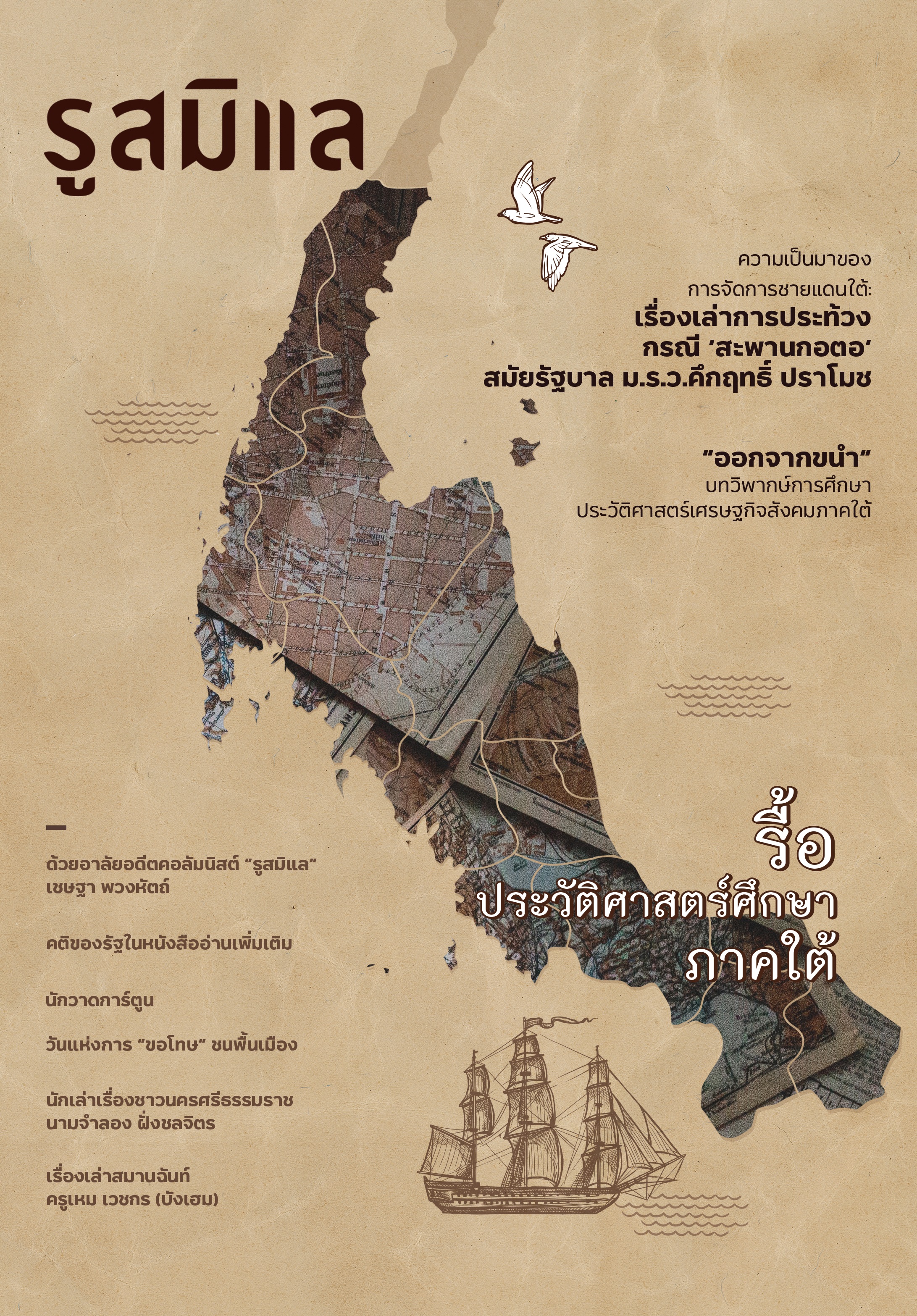วันแห่งการ “ขอโทษ” ชนพื้นเมือง: บทเรียนจากรัฐบาลออสเตรเลียสู่สามจังหวัดชายแดนใต้ของประเทศไทย
Abstract
The objective of this article is to learn ethnocentrism’s concept by comparing between the experience of the Australian government with the Aborigins and the relationship of the Thai government with the Malay Muslim minorities in the southern border province of Thailand. The method of study is from documents. The study found that being aware of ethnic prejudice is important process for creating peace. In particular, studies and reports have shown that ethnocentrism is social construct. During the colonial era, ethnic prejudice tended towards negative social behavior and become racism through differentiating of physical characteristic. The result of this belief has led to violence in various forms of ethnic minorities such as stolen generation in Australia context, genocide and social unrest in the southern border provinces of Thailand. In 1997, Australia Parliament studied and reported, finally, the outcome come into the form of a sorry day, providing the treatment of indigenous peoples by acknowledging the act of the 19th century colonization as a stone age behavior. The new relationship has been built especially the courage to speak the truth. The lessons of Australia when applied in Thailand should use qualitative research and quantitative research and find ways to campaign and communicate each other psychological trauma. This may lead to the rice steeping of ethnic biases that may occur in the near future.
References
Andy Jackson. (2018). May 26, 1998: Australia acknowledges 'Stolen Generation' on first National Sorry Day. Retrieved from http://home.bt.com/news/on-this-day/may-26-1998-australia-acknowledges-stolen-generation-on-first-national-sorry-day-11363982882256
Australian Human Rights Commission. (2020). National Sorry Day. https://www.humanrights.gov.au/about/get-involved/events/national-sorry-day
Australians together. (n.d.) The Stolen generation. Retrieved from https://australianstogether.org.au/discover/australian-history/stolen-generations
Barta, T. (2005). Mr Darwin's shooters: on natural selection and the naturalizing of genocide. Patterns of Prejudice, 39(2), 116-137.
Dennis, R. M. (1995). Social Darwinism, scientific racism, and the metaphysics of race. Journal of Negro Education, 243-252.
Diss, Kathryn. (2017). Stolen Generation picture collection in WA looking for a new home. Retrieved from https://www.abc.net.au/news/2017-06-15/stolen-generation-funding/8618366
Downunderonline. (n.d.). Aboriginal Culture. Retrieved from http://www.downunderonline.com/australian_aboriginal_culture.htm
Erin Blakemore. (2015). Aboriginal Australians. Retrieved from https://www.nationalgeographic.com/culture/people/reference/aboriginal-australians/
Fest, J.C. (1974). Hitler (Richard and Clara Winston Trans.). HMH: Veriag Ullstein
Independent. (2018). National Sorry Day: How Australia apologises to the Aborigines for the wrong of the past. Retrieved from https://ind.pn/2ZexJsr
Memmi, A. (2000). Racism. London: University of Minnesota Press.
Reconciliation Australian. (2016) The State of Reconciliation in Australia Summary. Retrieved from https://www.reconciliation.org.au/wp-content/uploads/2017/11/State-of-Reconciliation-Report_SUMMARY.pdf
Spielvogel, J., & Redles, D. (1986). Hitler’s Racial Ideology: Content and Occult Sources. Simon Wiesenthal Center Annual, 3, 227-246.
Stein, G. J. (1988). Biological science and the roots of Nazism. American Scientist, 76(1), 50-58.
Sydney4Thaihome. (2019). 17 สัตว์น่ารักในออสเตรเลียที่มาละลายหัวใจคุณ. สืบค้นจากhttps://bit.ly/2MbDdCz
Van Dijk, T. A. (2015). Racism and the Press. Retrieved from https://www.overcominghateportal.org/uploads/5/4/1/5/5415260/teun_a_van_dijk_-_racism_and_the_press.pdf
กระทรวงศึกษา. (2559). ‘ทวิภาษา’ หนทางแก้ปัญหาอ่านเขียน. สืบค้นจากhttps://www.moe.go.th/moe/th/news/detail.php?NewsID=45099&Key=news_research
คณะกรรมการอิสระเพื่อความสมานฉันท์แห่งชาติ (กอส.). (ม.ป.ป.) รายงานคณะกรรมการอิสระเพื่อความสมานฉันท์แห่งชาติ (กอส.). สืบค้นจาก https://chaisuk.files.wordpress.com/2008/09/nrcreport-thai1.pdf
ฆ่าล้างเผ่าพันธุ์รวันดา: ครบรอบ 25 ปี เหตุสังหาร 8 แสนชีวิตภายใน 100 วัน (2019, 9 เมษายน), BBC News ไทย สืบค้นจาก https://www.bbc.com/thai/international-47855860
ทวีพร คุ้มเมธา. (2016). สัมภาษณ์: ภาษามลายู ปมความขัดแย้งที่รัฐไทยมองไม่เห็น. สืบค้นจากhttps://prachatai.com/journal/2016/07/66854
ธิติ มีแต้ม. (2018). Exclusive : พ.ต.อ.ทวี สอดส่อง กับภารกิจชักธงพหุวัฒนธรรมขึ้นสู่ยอดเสา. สืบค้นจาก https://www.the101.world/tawee-sodsong-interview/
ศิลปวัฒนธรรม. (2019). วันที่ 13 ธันวาคม 1937: จุดเริ่มต้นการสังหารหมู่แห่งนานกิง. สืบค้นจาก https://www.silpa-mag.com/this-day-in-history/article_4776
ศิลปวัฒนธรรม. ย้อนดู “การแต่งกาย” สมัยจอมพล ป. รณรงค์ให้นุ่งผ้าถุง ชี้ทั่วโลกกำลังนิยม. https://www.silpa-mag.com/culture/article_11660
ศูนย์ประสานงานองค์กรเอกชนพัฒนาชาวไทยภูเขา (ศอข.). (2008). บทความเกี่ยวกับชนเผ่า เรืองความเป็นชาติพันธุ์ (Ethnicity). สืบค้นจาก http://www.openbase.in.th/node/3457
สุรินทร์ พิศสุวรรณ และชัยวัฒน์ สถาอานันท์. (2527). สี่จังหวัดภาคใต้กับปัญหาสิทธิมนุษยชน. กรุงเทพ: สถาบันไทยคดีศึกษา มหาวิทยาลัยธรรมศาสตร์ และมูลนิธิโครงการตำราสังคมศาสตร์และมนุษยศาสตร์.
Downloads
Published
How to Cite
Issue
Section
License
บทความในวารสารรูสมิแลเป็นของผู้เขียนแต่ละท่าน ผู้ประสงค์จะนำข้อความใดๆ ไปเผยแพร่
ต้องได้รับอนุญาตจากผู้เขียนตามกฎหมายลิขสิทธิ์ และแจ้งให้ทางกองบรรณาธิการทราบ
กองบรรณาธิการขอสงวนลิขสิทธิ์ในการตัดทอน/ปรับแก้ถ้อยคำเพื่อความเหมาะสม



